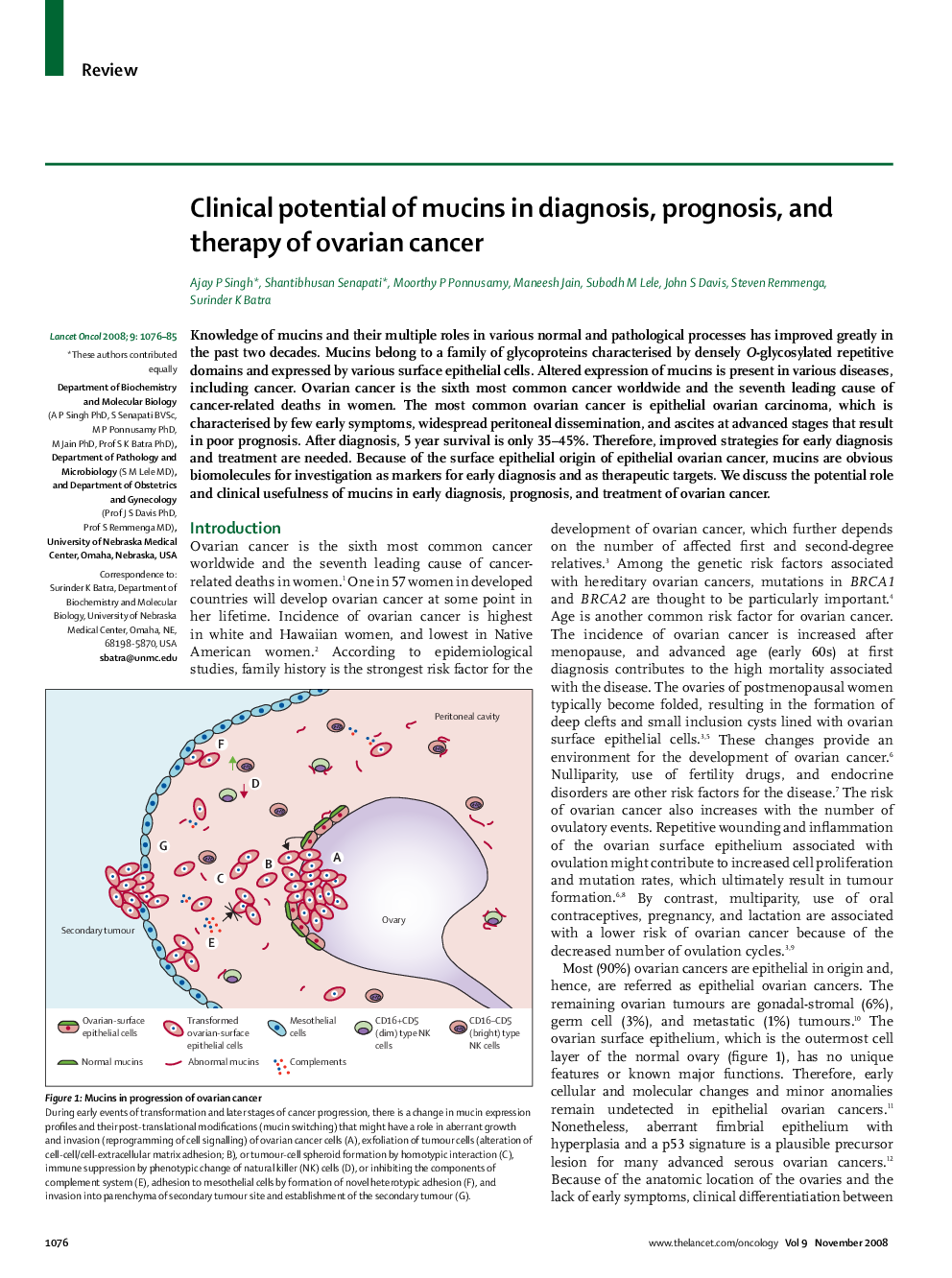| Article ID | Journal | Published Year | Pages | File Type |
|---|---|---|---|---|
| 3995949 | The Lancet Oncology | 2008 | 10 Pages |
SummaryKnowledge of mucins and their multiple roles in various normal and pathological processes has improved greatly in the past two decades. Mucins belong to a family of glycoproteins characterised by densely O-glycosylated repetitive domains and expressed by various surface epithelial cells. Altered expression of mucins is present in various diseases, including cancer. Ovarian cancer is the sixth most common cancer worldwide and the seventh leading cause of cancer-related deaths in women. The most common ovarian cancer is epithelial ovarian carcinoma, which is characterised by few early symptoms, widespread peritoneal dissemination, and ascites at advanced stages that result in poor prognosis. After diagnosis, 5 year survival is only 35–45%. Therefore, improved strategies for early diagnosis and treatment are needed. Because of the surface epithelial origin of epithelial ovarian cancer, mucins are obvious biomolecules for investigation as markers for early diagnosis and as therapeutic targets. We discuss the potential role and clinical usefulness of mucins in early diagnosis, prognosis, and treatment of ovarian cancer.
